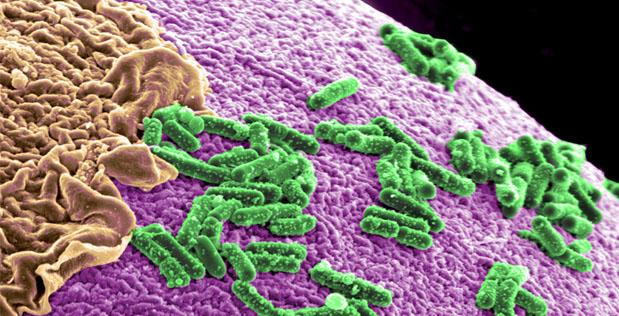Should You Be Able to Patent an Organism?
By Robert Hart,
Slate
| 04. 07. 2017
As with many new fields, synthetic biology—which incorporates disparate disciplines like engineering, computer science, biotechnology, and molecular biology—is hard to pin down. But a rough working definition says that it is the application of the principles of engineering to biological systems. Instead of using engineering’s discrete modules of code, transistors, resistors, and capacitors, synthetic biology builds things from sequences of genetic material. The field has remarkable potential and has already been used to aid the production of antimalarial drugs and synthetic flavorings. One researcher used mail-order DNA and a genetic map available online for free to create a live polio virus. The implications could be enormous.
But the same characteristics that make it promising also create profound questions, particularly in terms of who will profit. Can you own or patent synthetic organisms? How will researchers access the genetic materials needed to do research? Will big companies be able to dictate who can participate in research? How we answer these questions and others will shape the future of the field—and determine whether synthetic biology lives up to its touted...
Related Articles
By Danny Finley, Bill of Health | 01.08.2026
The United States Food and Drug Administration (FDA) has a unique funding structure among federal scientific and health agencies. The industries it regulates fund nearly half of its budget. The agency charges companies a user fee for each application
...
By David Cox, Wired | 01.05.2026
As he addressed an audience of virologists from China, Australia, and Singapore at October’s Pandemic Research Alliance Symposium, Wei Zhao introduced an eye-catching idea.
The gene-editing technology Crispr is best known for delivering groundbreaking new therapies for rare diseases, tweaking...
By David Jensen, The California Stem Cell Report | 12.11.2025
California’s stem cell and gene therapy agency today approved spending $207 million more on training and education, sidestepping the possibility of using the cash to directly support revolutionary research that has been slashed and endangered by the Trump administration.
Directors...
By Tina Stevens, CounterPunch | 12.11.2025
Silicon Valley and other high tech billionaires are investing millions in start-ups dedicated to creating genetically engineered (GE) babies, according to a recent Wall Street Journal (WSJ) report. AI mogul Sam Altman, cryptocurrency entrepreneur Brian Armstrong, venture capitalist Peter...




